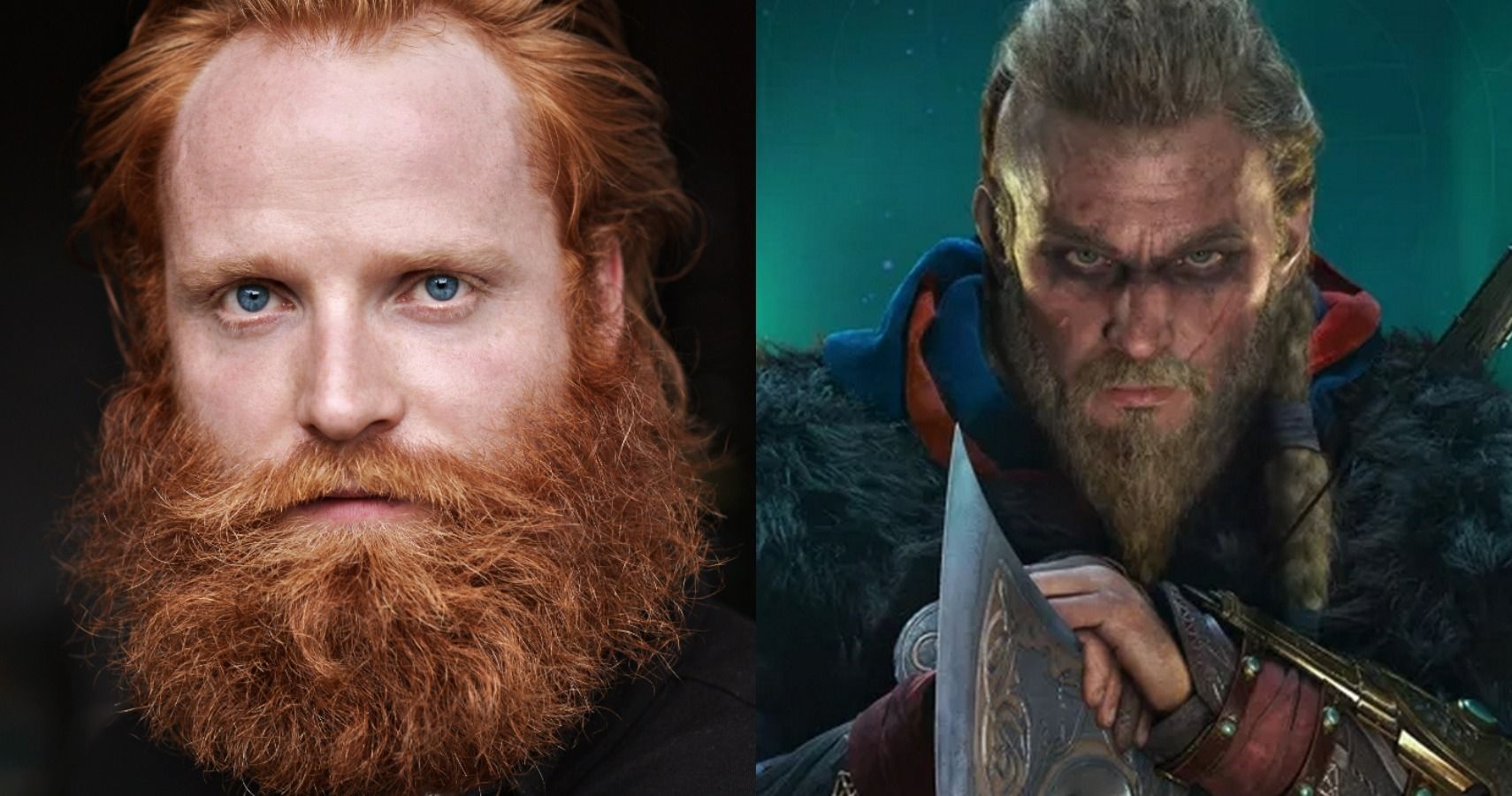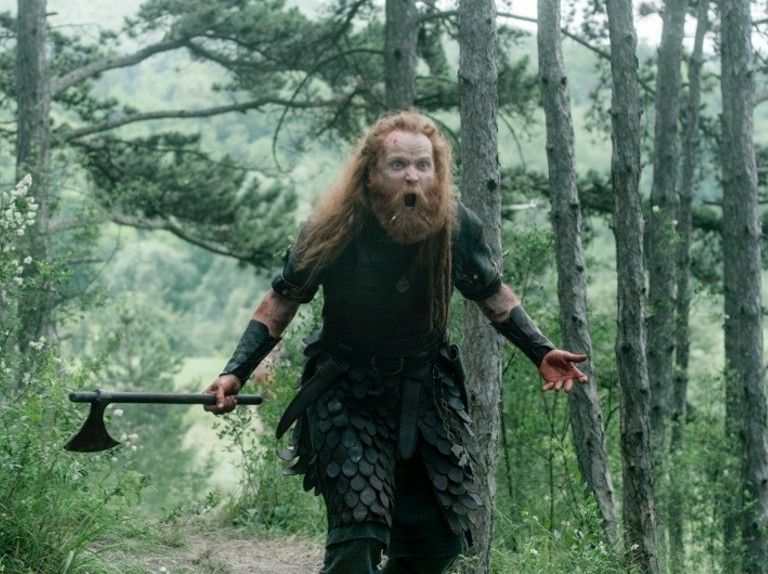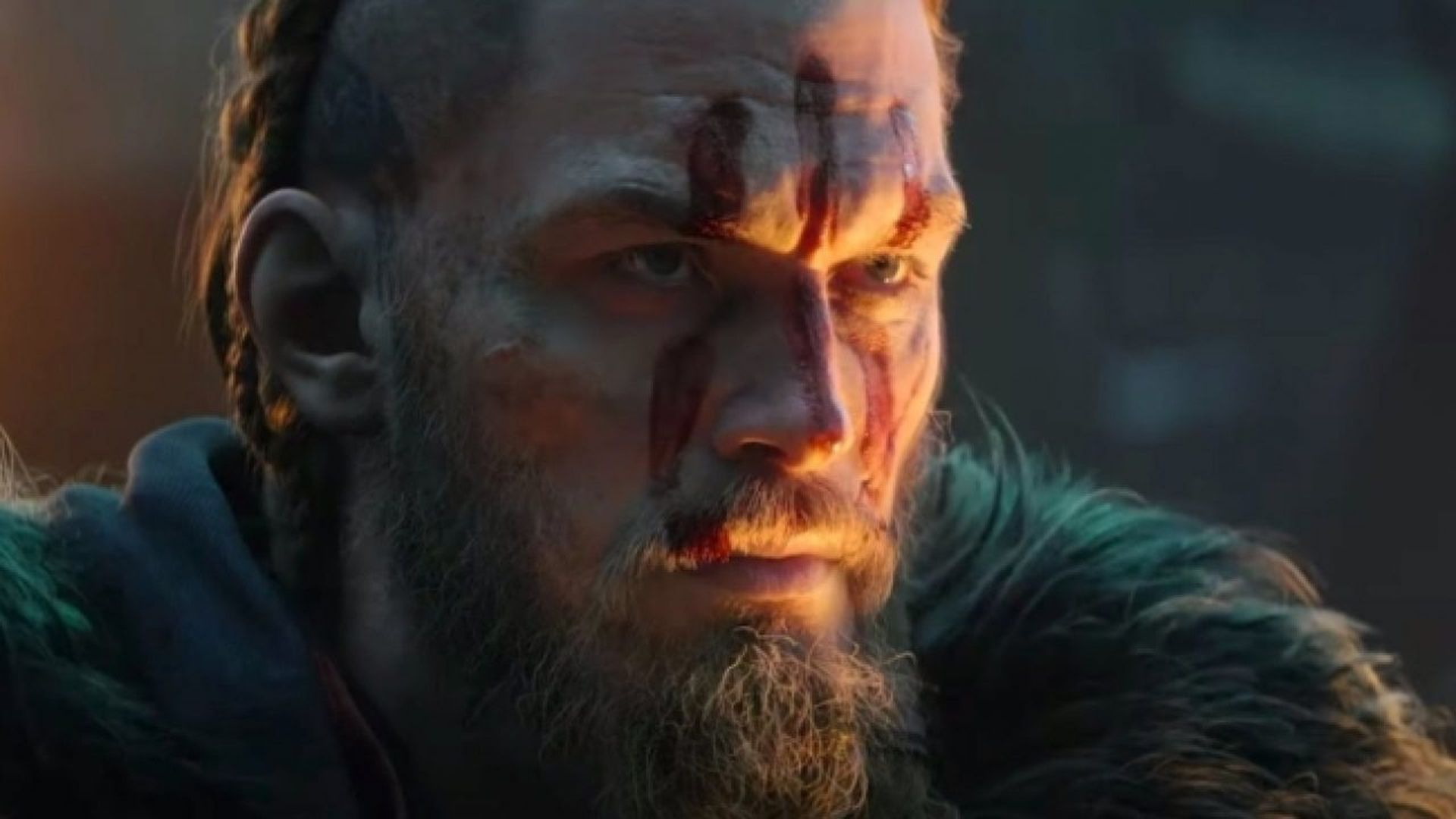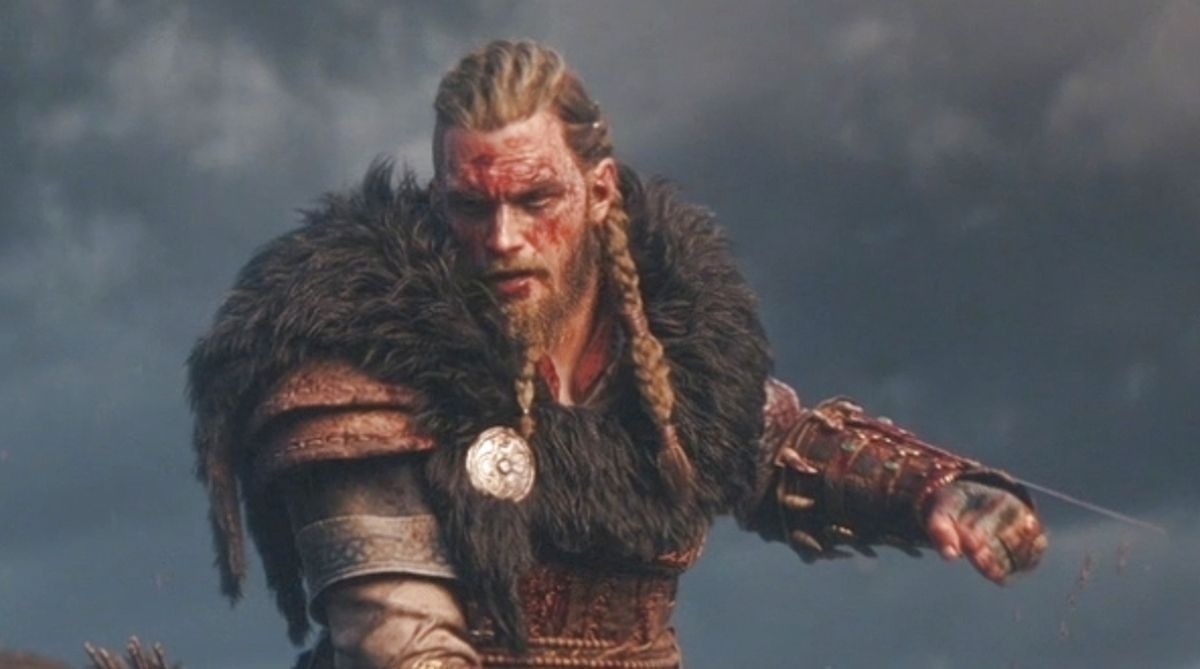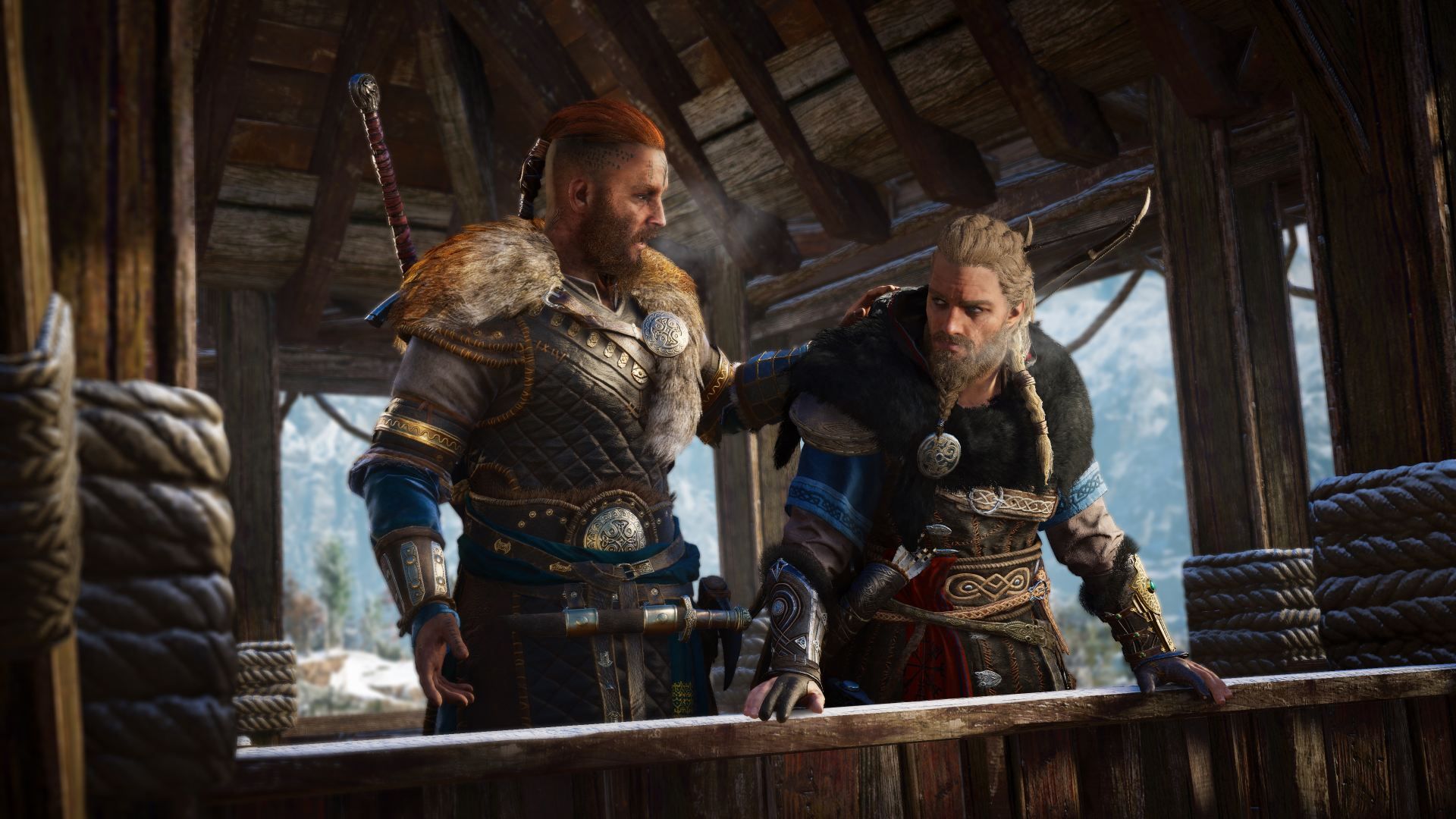When Magnus Bruun joined my Zoom meeting, we spent the first ten or 15 minutes casually bantering. There were no interview questions, no weird caveats of professionalism that demand a debilitatingly dry demeanor - it was just a chat. Like the Viking he brings to life in Assassin’s Creed Valhalla, Bruun is a conversationalist who talks without pretense - it’s very refreshing.
Prior to Valhalla, Bruun had never played an Assassin’s Creed game. In fact, he had no idea he was even auditioning for a video game when he sent his first tape. Assassin’s Creed Valhalla was originally listed as a bit of a red herring. Bruun auditioned for the role of Sigurd - Eivor’s older brother in the game - in an animated series called The Black Wolf Saga, which doesn’t actually exist. It wasn’t until he was called to London that his agent noticed the audition was being held with Ubisoft, which was the first hint that something was up here.
“I went into the room and there were five directors,” Bruun explains. “A casting director and four directors from Canada. Normally if you’re lucky, you get one director and maybe a producer, but this was five. It’s like, ‘I’m the animation director, I’m the narrative director - so this is the new Assassin’s Creed game’. And then it’s like okay, cool, now I know what we’re doing, which was lucky because I didn’t hate gaming. ‘So it’s Assassin’s Creed? I’m off man, fuck you guys. You promised me an animated series.’”
Bruun was the last audition of the day and played both Sigurd and Eivor - who had a different name at that point - for the directors in the room. Assassin’s Creed Valhalla narrative director Darby McDevitt thanked him for his time and praised his performance, which led to Bruun feeling pretty good - in his eyes, it was one of the “best auditions [he] ever attended.” This feeling was soon justified, as he received a call back before he even got the meal he ordered after leaving the audition. And so he went back to the studio the following morning and auditioned for Eivor against Gudmundur Thorvaldsson, who played and eventually got the role for Sigurd. The pair left the studio together and immediately exchanged numbers, with Bruun affectionately referring to “Gumi” as a “dear friend” now. “It was nice being friends with my brother in the game,” he tells me. “If I’d hated him it wouldn’t have been fun.”
Auditions for video game roles work quite differently to traditional film ones. Bruun explains that Darby McDevitt told him about how video game casting directors often spend just as much time listening to candidates as they do watching their actions. “They look at the tape obviously, and how you’re doing the acting,” he says. “But at some point they will turn the screen and just listen. It has to be a voice that you can listen to for 200 hours and still not hate. It doesn’t work if after 50 hours you’re like, ‘Oh fuck me.’”
Bruun is ecstatic with how well Valhalla has performed so far and extremely grateful for the millions of fans that have watched his performance. However, he needs to wait a minute before he sits down to play the game himself.
“I’m still working on it,” Bruun says. “I’ve done it all, I’ve said every line, I know every story. I’m too close to it. I need to step back for a while and then play it. I’ve sat next to one of my good friends playing it and that was hilarious. But when you hear *grunt* *urgh* - I made all those sounds.
“When I watch the scenes it’s like watching a film I’ve made. I know there’s animation, but I did that. I dropped down, I picked up my axe, I turned around, I lowered my voice, and then I shouted at Kjotve. But all the stuff I’ve done in voice over, I haven’t done any physical stuff for that. So when I see that in the game it’s like, ‘Oh so that’s how they animated that.” And then I start working again. ‘Can we change this because now I want to say the line a little bit differently.’ ‘No. it’s the game, you can’t change the game.’”
Fortunately for Bruun, he had a bit of a secret weapon going into Valhalla, having already played Cnut in Netflix’s Viking series The Last Kingdom. While Eivor is very much their own person, being in that mindset definitely lent itself well to the dialect, movements, and overall mentality of a ninth-century drengr.
“The Viking spirit was inside me,” Bruun tells me. “They are two very different characters but then again they’re both leading Viking warlords, so the mindset is alike even though one is a hero and the other is portrayed as a self-serving baddie. I just call him ambitious. I never play evil characters, that’s not in my vocabulary. Maybe they do despicable things, but there’s always a reason. If you put that label on your character - ‘I play this evil guy’ - it doesn’t work because I don’t think he thinks he’s evil. He just has a different means to getting what he wants. Also Eivor is such a big character. I’ve done 11,000 lines for that character - you will meet them in every possible way, [whereas] you won’t meet Cnut in every possible way.”
It’s interesting when you consider the characters alongside one another, looking at their hopes and ambitions. Bruun explains that the Vikings are often misunderstood, which is something that Valhalla managed to successfully circumvent.
“Norway, Denmark, and Sweden at that point - you couldn’t grow crops,” Bruun says. “Today it’s green fields and sort of looks like England, but back then it didn’t. You couldn’t live there, you couldn’t have livestock. That was why they left. There’s a line in season three of The Last Kingdom that Wessex was called ‘Valhalla in our time.’ That’s because of the green fields, the flowing rivers, the better weather. That was what the Vikings were after.
“The thing is the Vikings didn’t write books. They wrote runes but they didn’t have pens and paper. And in the end, the Vikings lost. A lot of them stayed in England but they lost the war. It’s not King Cnut and his kids that are now the kings of England. The stories are written by the winners, especially here where the winners were the only ones who could actually write. The Vikings have also been portrayed as people just going ‘pillage and burn and kill all the monks argh.’ It was a different culture, but it wasn’t all that.”
Portraying the Vikings came with caveats beyond stereotypes, though. At one stage, Asgard was styled and pronounced as the original Ásgarðr from Old Norse, although the devs eventually decided it wasn’t working. “People have to understand where we are,” Bruun says. “We had to pronounce some of the names as you would now instead of being like, ‘No we’re so authentic that the players won’t understand shit.’”
That’s where Valhalla succeeds, in Bruun’s eyes. It focuses on building a settlement and forging alliances, on the politics at play between the Danes and Saxons. Towards the end of the game, all of the allegiances you’ve made along the way will come back to help you - and all of the ones you failed to cement will crumble to dust. “It’s like this big spider web that suddenly unfolds where you’re like, ‘Ah he was so annoying but now I need him,’” Bruun says. “If you fall for the characters then it’s nice to have all these callbacks - ‘Thank god they heed my call now, they come to my aid as I aided them.’”
This is all important to consider given Bruun’s own heritage. He’s Danish, which means he’s intimately acquainted with the Norse pantheon and tales of Viking berserkers. “I’ve been reading a lot about the gods in Norse mythology,” he tells me. “I knew a lot because I’m Danish, this is part of my life. These are bedtime stories from when we’re kids. We have Viking comics about the Norse gods. For Eivor, obviously Odin is a big part, so I looked at him. Darby gave me this book by Daniel McCoy called The Viking Spirit that was a huge part of my research. I learned stuff from that book - and I thought ‘oh, I know Odin.’”
Cnut, meanwhile, was based on Loki. Bruun said the jump was easy at first because he did the work - then it became hard again because he had to do motion capture for the first time. As he explains during our interview, he recorded around 95% of the overall motion capture for Eivor, while Cecilie Stenspil - the actor for female Eivor - started on voice overs and just mo-capped the final scene with Odin.
“Wires and shit,” Bruun says, thinking back to his first experience with mo-cap. “I looked like I was doing aerobics in a ‘90s movie. I had to clean shave as well for the motion capture because all my small microexpressions - they had to have dots on my face. I remember my first day going in there getting my spandex suit on, being clean shaved, having nothing. ‘Now, you’re a Viking hero. Go’. Like, fuck me. I don’t get the feel right now. I’m used to sitting on a big black stallion with 200 extras and 20 stunt guys looking like a billion [people] behind me. That’s my army. Now I just look shit. That was my first day just going, “OK this is gonna be tougher than I thought.
“Then you find out actually it’s quite easy, everything is possible here. You can do anything and they can just animate it. But you are sitting on boxes when you think you’re sitting on a horse. I like the horse more.”
Bruun also chatted about the differences between male and female Eivor, and about how neither he nor Cecilie Stenspil mind which one you choose to play as. It’s the same character, after all, and they’re just happy you’re playing the game in the first place. You can read about that in our other Assassin’s Creed Valhalla Eivor interview, which also includes Bruun’s thoughts on the incredible importance of representation in games right now.

